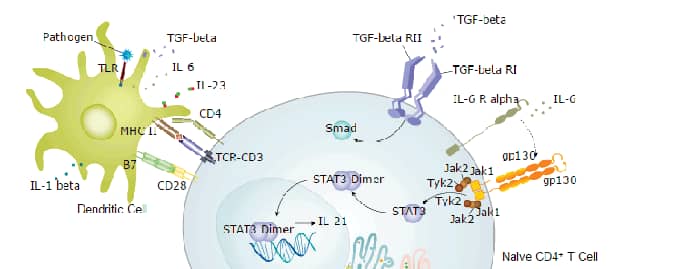Mouse B7-2/CD86 PE-conjugated Antibody Summary
Applications
Please Note: Optimal dilutions should be determined by each laboratory for each application. General Protocols are available in the Technical Information section on our website.
Scientific Data
 View Larger
View Larger
Detection of B7‑2/CD86 in Mouse Splenocytes by Flow Cytometry. Mouse splenocytes either untreated (light orange filled histogram) or treated with 1 µg/mL LPS for 3 days (dark orange filled histogram) were stained with Rat Anti-Mouse B7-2/CD86 PE-conjugated Monoclonal Antibody (Catalog # FAB741P) or isotype control antibody (Catalog # IC006P, open histogram). View our protocol for Staining Membrane-associated Proteins.
Reconstitution Calculator
Preparation and Storage
- 12 months from date of receipt, 2 to 8 °C as supplied.
Background: B7-2/CD86
B7-1 and B7-2, together with their receptors CD28 and CTLA-4, constitute one of the dominant costimulatory pathways that regulate T- and B-cell responses. Although both CTLA-4 and CD28 can bind to the same ligands, CTLA-4 binds to B7-1 and B7-2 with a 20-100 fold higher affinity than CD28 and is involved in the down‑regulation of the immune response. B7-1 is expressed on activated B cells, activated T cells, and macrophages. B7-2 is constitutively expressed on interdigitating dendritic cells, Langerhans cells, peripheral blood dendritic cells, memory B cells, and germinal center B cells. Additionally, B7-2 is expressed at low levels on monocytes and can be up-regulated through Interferon gamma. B7-1 and B7-2 are both members of the immunoglobulin superfamily. Mouse B7-2 is a 309 amino acid (aa) protein containing a putative 23 aa signal peptide, a 221 aa extracellular domain, a 21 aa transmembrane domain, and a 44 aa cytoplasmic domain. Mouse B7-2 and B7-1 share 28% amino acid identity. Mouse and human B7-2 share 50% amino acid identity. However, it has been observed that both human and mouse B7‑1 and B7-2 can bind to either human or mouse CD28 and CTLA-4, suggesting that there are conserved amino acids which form the B7-1/B7-2/CD28/CTLA-4 critical binding sites.
Product Datasheets
Citations for Mouse B7-2/CD86 PE-conjugated Antibody
R&D Systems personnel manually curate a database that contains references using R&D Systems products. The data collected includes not only links to publications in PubMed, but also provides information about sample types, species, and experimental conditions.
2
Citations: Showing 1 - 2
Filter your results:
Filter by:
-
Caffeic Acid Phenethyl Ester Suppresses Oxidative Stress and Regulates M1/M2 Microglia Polarization via Sirt6/Nrf2 Pathway to Mitigate Cognitive Impairment in Aged Mice following Anesthesia and Surgery
Authors: Yue Wang, Ziwen Cai, Gaofeng Zhan, Xing Li, Shan Li, Xuan Wang et al.
Antioxidants (Basel)
-
Claudin-Low Breast Cancer Inflammatory Signatures Support Polarization of M1-Like Macrophages with Protumoral Activity
Authors: MC Suárez-Arr, A Méndez-Ten, V Pérez-Kold, EM Fuentes-Pa
Cancers, 2021-05-07;13(9):.
Species: Mouse
Sample Types: Whole Cells
Applications: Flow Cytometry
FAQs
No product specific FAQs exist for this product, however you may
View all Antibody FAQsReviews for Mouse B7-2/CD86 PE-conjugated Antibody
There are currently no reviews for this product. Be the first to review Mouse B7-2/CD86 PE-conjugated Antibody and earn rewards!
Have you used Mouse B7-2/CD86 PE-conjugated Antibody?
Submit a review and receive an Amazon gift card.
$25/€18/£15/$25CAN/¥75 Yuan/¥2500 Yen for a review with an image
$10/€7/£6/$10 CAD/¥70 Yuan/¥1110 Yen for a review without an image




